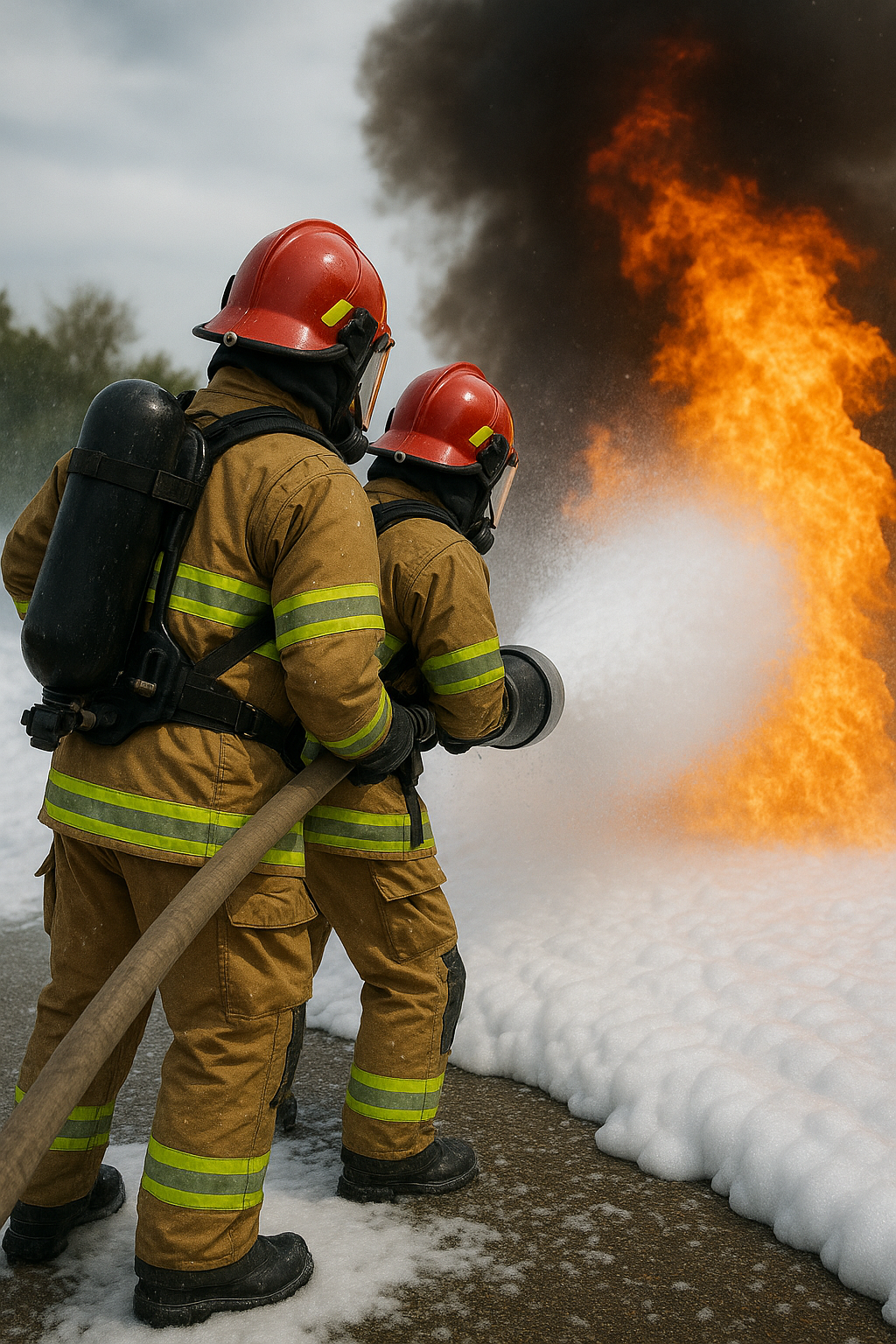Concern was raised about the removal of Per- and Polyfluoroalkyl Substances or PFAS vessels aboard the ExxonMobil-Woodside Energy oil and gas platforms at a recent public consultation meeting held by the company in Yarram.
In cafes, pubs and gyms across the region, murmurs of unease about the highly toxic substance entering Corner Inlet have locals worried the waterway could suffer the same fate as the Gippsland Lakes, which have “PFAS at levels almost 200 times higher than ecological guidelines” according to Friends of the Earth.
PFAS are synthetic chemicals commonly used in firefighting foams, industrial applications, and everyday consumer products which are extremely resistant to breaking down in the environment and often referred to as “forever chemicals.”
With growing evidence of their toxic impact on health and the environment, governments around the world, including in Australia, are moving fast to introduce tighter controls, disposal thresholds, and remediation requirements.
When asked about the presence of PFAS on the platforms, Decommissioning Asset Manager for ExxonMobil Australia, Simon Kemp told the small group attending the Yarram consultation meeting that the company had already “changed out” much of the platforms PFAS infrastructure and that all that is left is “small firefighting vessels”, that “will be emptied” prior to coming ashore.
However, Bartek Kogutowski, senior project manager for Delta Group subsidiary, CMA, who are charged with the dismantling of the structures once landside said, “We are expecting, if there is any [PFAS], it will be residues that we need to deal with. So, that's what's going to be handled on-site, and we've got systems and protection for that too.
“But we prepare for it like it's larger quantities than we expect. Obviously, we always prepare for more”.
When subsequently asked about the removal process, an ExxonMobil spokesperson said, “When replacing the fire-fighting foam, we followed strict regulations and environmental standards. For our offshore facilities, this included safely removing the fire-fighting foam and then undertaking a stringent cleaning process to clean the tank before the foam was replaced. The PFAS-containing fire-fighting foam was then safely transported to Barry Beach Marine Terminal where it was disposed of in line with regulatory requirements.”
Grant Leeworthy, managing director at Fishermen Direct of Welshpool who attended the Yarram meeting told the Prom Coast News, “We weren’t informed”, regarding the historical removal of PFAS and its transport through Barry Beach Marine Terminal (BBMT).
Leeworthy added, “A lot of people go, ‘she’ll be alright, mate.’ Well, when this is linked to testicular cancer, I don't want to be relaxed about that.”
“Our Inlet is pristine for a reason. Part of our sales pitch for our fish is that it’s from a clean and pure environment, and PFAS is implicated in the shutdown of commercial fishing at Lakes Entrance which hasn’t been openly discussed. So the removal of PFAS outside the Inlet is our preferred option,” Leeworthy concluded.
Stage one of the project is expected to commence with the arrival of the world’s largest ship, the purpose built Pioneering Spirit, in the fourth quarter of 2026. David Barrett



